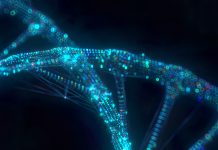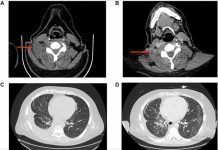Here, we discover the impact and importance of psychedelic medicine through the eyes of Amanda Feilding, Director of The Beckley Foundation
For over 20 years, Amanda Feilding has been among the vanguard driving forward the scientific investigation of the medicinal benefits of psychedelic compounds. As the Director of the Beckley Foundation, she has collaborated with a diverse range of world-leading researchers to generate high-impact research into the neuroscience, pharmacology and therapeutic applications of psychedelics such as LSD, psilocybin and DMT.
Amanda and her constellation of collaborators are continuing to broaden the scope of psychedelic medicine. Here, we introduce the new research programme she has been developing over the past three years, with a focus on discovering how psychedelic-assisted therapies might not only help some of the most serious and intractable health issues burdening our society, but also improve how we age and – ultimately – how we die.
Mental health
There is an intractable mental health epidemic sinking its claws into our society. Rates of anxiety, depression and addiction have never been as high, and continue rising. Treatment typically focuses on relieving symptoms instead of targeting the underlying causes, and as many as one in three individuals exhibit ‘treatment-resistance’, rendering conventional therapies ineffective.
The Beckley-Imperial Research
Programme published a series of ground-breaking studies establishing the effectiveness of psychedelic-assisted therapy for treatment-resistant depression, providing the first rigorous evidence that psychedelics act as a ‘reset switch’ for brains stuck in a ‘depressive rut’. Promising new data from Amanda’s work with Maastricht University suggests psychedelics may be an effective treatment for depression even at ‘microdose’ levels low enough to have no noticeable psychoactive effects.
Once a nicotine addict herself, Amanda has been a firm advocate for the utility of psychedelic therapy for smoking cessation after she successfully used LSD to treat herself in 1966, when the drug was still legal. Working with John Hopkins University, Amanda and the Beckley Foundation produced the first evidence demonstrating the effectiveness of psilocybin-assisted therapy for overcoming nicotine addiction. Today, psychedelics are widely acknowledged as a breakthrough therapy for addiction, working to ‘uproot’ harmful addictive behaviours in the same way that they dislodge depressive thought patterns and reset the brain.
Healthy ageing
Whilst growing older is an unavoidable and normal process, there are several negative consequences of ageing that may be avoidable with the assistance of psychedelic medicine. Cognitive decline affects everyone to some degree, but its onset can be faster or slower and its magnitude greater or weaker from individual to individual. The factors determining the differences between individuals are a product of both psychology and biology: low mood and a lack of mental stimulation have been shown to advance cognitive decline, as has increased ‘wear and tear’ in brain cells linked to old age. Psychedelic compounds provide a potential remedy to these factors, by improving mood and creativity, whilst also enhancing the brain’s resilience to damage and stagnation. Amanda’s research has used minibrains and animals as models for ageing in humans, and has shown remarkable increases in cognitive flexibility that may slow or even reverse normal cognitive decline.
Palliative care
Modern approaches to palliative care have systematically failed in addressing the severe psychological trauma of dying. It is, of course, unreasonable to expect dying to ever be positive and stress-free, but for many patients dying is a needlessly traumatic and lonely experience, with little in the way of dedicated support beyond the care of family members, and for many, not even this comfort is available. Working with a world-leading palliative care specialist in Jamaica, Amanda is developing a project intending to revolutionise palliative care and transform the experience of dying from traumatic to transcendent, introducing psychedelic-assisted therapy into the treatment regimens of patients at a palliative care clinic.
Microdosing, plus psychedelic therapy in palliative care provides an opportunity for patients to alleviate their emotional hardship and assume a more deliberate and reflective approach to their death. Their anti-depressant properties allow a patient to achieve positive recontextualization of depressive thoughts, whilst their mood and cognition-enhancing effects improve vitality and enjoyment.
Perhaps most significantly, their transformative properties may help a patient to overcome the existential anxiety of dying and achieve personal and spiritual growth in a part of their lives otherwise dominated by decline.
Neurodegenerative disorders
Amanda believes that the use of psychedelic medicine as a therapeutic intervention for neurodegenerative disorders has dual benefits. Depression and anxiety feature strongly alongside neurodegeneration and may increase its severity, and so the therapeutic potential of psychedelic compounds for treating these conditions may make them useful supporting therapies, in any case, alongside other interventions. However, it may be possible to use psychedelic therapies to directly treat some of the physiological causes of Alzheimer’s, Parkinson’s and other neurodegenerative disorders.
Collaborating with researchers in Brazil, Amanda is using miniature cellular models of the brain to study the remarkable ability of psychedelic compounds to promote the growth of brain cells, synapses, axons and dendrites, highlighting their exciting potential for repairing neurodegeneration or brain damage. Indeed, Beckley Foundation research has shown that microdose amounts of LSD increase the levels of ‘BDNF’ (Brain-Derived Neurotrophic Factor) in the brain, a compound that plays a pivotal role in the repair and growth of brain cells. Artificially increasing the amount of BDNF may provide a means of resisting or reversing the widespread damage to brain cells characteristic of neurodegenerative disorders, and upcoming research initiated by Amanda will soon test this theory in a population of patients suffering from Alzheimer’s disease.
In addition, the Beckley Foundation’s neurodegenerative research programme will soon launch a ground-breaking study investigating the use of microdoses of the psychedelic ibogaine as a therapy for Parkinson’s disease. Amanda herself has personally observed the remarkable therapeutic effects of the compound in a close acquaintance of hers suffering from the disease, and she and colleagues are currently undertaking an observational survey investigating the efficacy of microdosing ibogaine as a treatment of a variety of neurodegenerative disorders.
Moving forward
Through these projects, Amanda and her team at the Beckley Foundation are working to bring psychedelic therapies to the cutting edge of modern medicine. They do this to advance our knowledge of psychedelics and their therapeutic potential and ensure that public and private sector actors are properly informed. The Beckley Foundation relies exclusively on the generosity of philanthropists.











